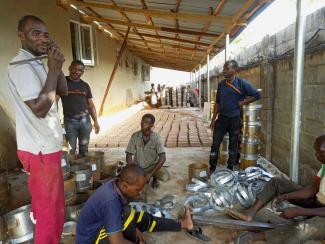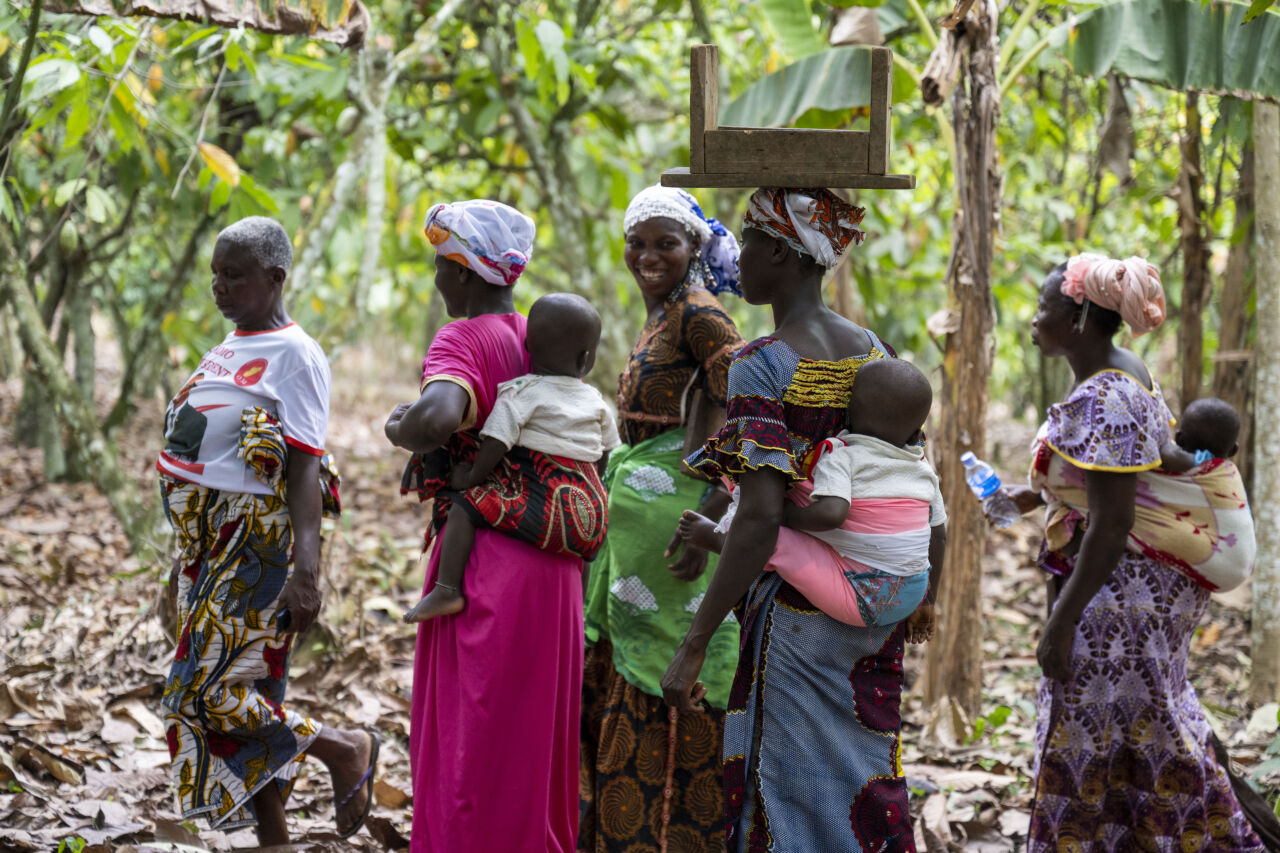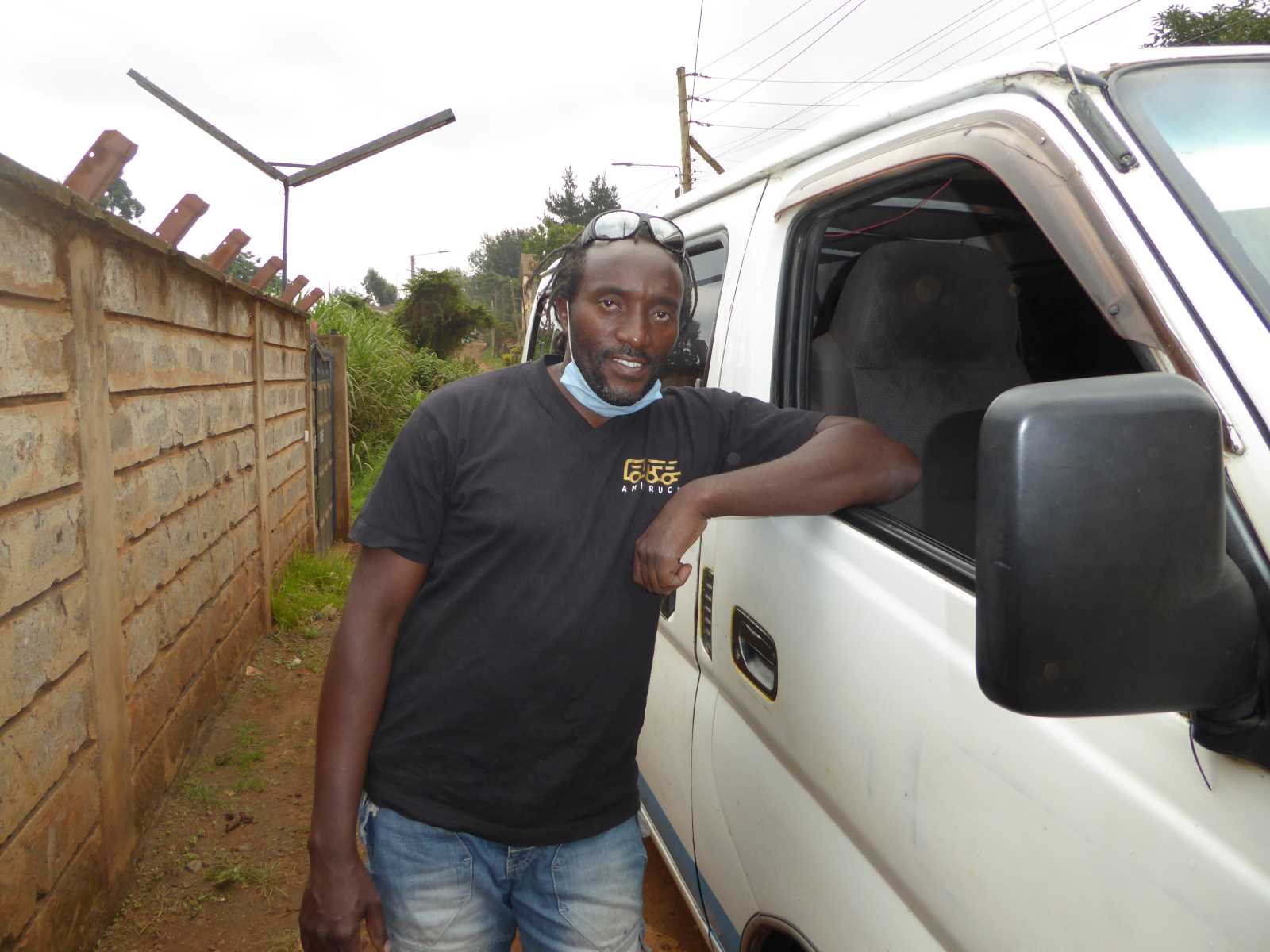Financing
“We consider impact with every investment”

How was your company founded?
My co-founder, Erick Yong, was an experienced entrepreneur and I had achieved success in the financial industry. At some point, however, we both had the feeling that we needed to do something that was more personally fulfilling. Then we had the idea that we could share our expertise in creating, expanding, and successfully operating new businesses. This knowledge is precisely what many young enterprises in Africa lack. We always ask ourselves, what do businesses need? We started out in 2015 with just the two of us, and we now have a team of around 30 people, two thirds of whom are in Germany and one third in Africa.
Which businesses do you support?
We identify and direct our efforts towards small technology firms that have a good business idea, but are unable, on their own, to successfully grow a company that is already functioning well because they have no access to certain resources and lack the necessary expertise. A good example is PowerStove in Nigeria. The founder, Okey Esse, identified the need for save and cheap cooking. Over 90 % of Nigerian households still use charcoal and paraffin stoves, millions die from smoke pollution. After studying physics, Okey developed small stoves using pellets from wood and crop residues, being burned residue- and smoke-free. Various models can additionally generate electricity and via internet connection can use the offer „buy as you cook“. Partnering with GreenTec, a second production plan could be built and another one in Zimbabwe is planned.
By lack of resources you mean money, above all?
No, that’s not exactly it. If you don’t purchase the right resources with your money, it’s useless. The goal is for companies to acquire the right technology and suitable employees. That’s precisely what we offer with our experience and expertise. In Africa, for example, there is very little access to good IT specialists and good chief finance officers (CFOs), and accountants are also often hard to find.
Our approach is to find the right companies, the ones with potential. We help them get ready for investors. Our goal is to encourage them to take things a step further and reach certain milestones. If they are successful, we step in as shareholders, which is more or less how we get paid. We call our approach “results for equity”. In 2017, this idea won us the German Entrepreneurship Award for Development from Germany’s Federal Ministry for Economic Cooperation and Development (BMZ). For us, as a very new company, that was an amazing achievement.
What does the work of GreenTec Capital Partners look like in practice?
We are built on two pillars:
- investment and
- consulting – which we don’t do in the classical sense. I prefer to call our approach “venture-building as a service”. We see ourselves as an impact investor, meaning that we consider impact with every investment. Our strength is finding really good entrepreneurs with good business models that typically fulfil basic needs like access to food, energy or water. Not everyone can do that. For that reason, we have already attracted the attention of development organisations like the German Agency for International Cooperation (GIZ) and the French Development Agency (AFD) and have carried out projects with them. Our largest programme to date was identifying companies for AFD to support in the digital and technology sector. The project ran for two years, primarily in Francophone Africa, and had a 7-digit budget. We found around 150 companies, and many jobs were created. We are now working with AFD to develop a follow-up programme.
You also facilitate business partnerships – what does that mean?
We focus on technical partnerships. We bring German companies and African start-ups together. One example is e-bikes in Zambia. The technology was created in Germany and passed on to an operation in Zambia that uses it and can further develop it. Equal partnerships are very important to us.
Have you also experienced failure in your work?
Yes, of course, that’s normal. We have invested in companies that did not develop successfully. But we have learned a lot from the past. In the beginning, we wanted to operate across all of sub-Saharan Africa, but we currently concentrate on six countries and two issues – basic needs and technology platforms. Naturally those two can overlap, for instance in the case of an agritech platform that connects small farmers with markets.
Why do projects and partnerships fail?
We always try to analyse that, of course. However, it’s not always very easy, because there are large cultural differences between a German medium-sized enterprise and an African start-up. That’s why mediators like us are very important, because we can bring together both sides’ expectations. Otherwise there can be many misunderstandings. Generally speaking, investors are concerned that there could be legal and tax-related problems if they invest in Africa. They also worry that companies from Africa will not actually meet their expectations. This reservation scares many investors away. They make their investments in Germany instead, or they go to Asia, where the situation at least feels more known.
What do you do to dispel these concerns?
One of our initiatives is an investment club for “angel investors”. We invite European investors who have already invested in Africa to talk about their experiences in order to help others make their decision. They are the “angels”. One example is an attorney from the United Kingdom who has invested in over 20 companies in Africa. His testimony convinces other people more than simply talking about the idea in theory. Co-investment is also interesting. We would like to explore that further this year. We are in the process of creating a co-investment club, where unexperienced members can invest in African companies together with experienced investors. We will inform club members who has already invested how much in which company and ask whether they would also like to participate. New investors will get a sense of security when they see who else is on board. Another advantage is that the entire contract design has already been done and does not need to be drawn up again.
You mentioned that it is particularly difficult to get smaller and medium-sized German enterprises to invest in Africa. What can you do to convince them?
In addition to so-called lighthouse projects, or particularly successful start-ups, it is very important to make the public and the media more aware of this topic. We also organise events like workshops or investor trips that bring 10 to 20 people to Africa. That wasn’t possible with Covid, of course. But this year we are planning a trip to Ghana and Rwanda. These trips are unbelievably interesting experiences. When we visit a tech company or a start-up, it is completely different than taking a beach vacation or a safari. Potential investors can see for themselves how innovative and smart people in Africa are.
Your name is “GreenTech” – are there certain criteria that determine which firms you work with?
Yes, we orient ourselves towards the UN’s Sustainable Development Goals (SDGs). We concentrate on four SDGs that can be measured: no poverty, reduced inequalities, economic growth and climate action. We want to measure our success. We also have a list of companies and industries that we do not do business with, because they do not operate sustainably, rely on child labour, promote compulsive gambling or damage the climate. We had a request from a tobacco company that we declined, even though it would have been very lucrative. But we do not support that industry.
Thomas Festerling is the chief finance officer and co-founder of GreenTec Capital Partners.
t.festerling@greentec-capital.com












